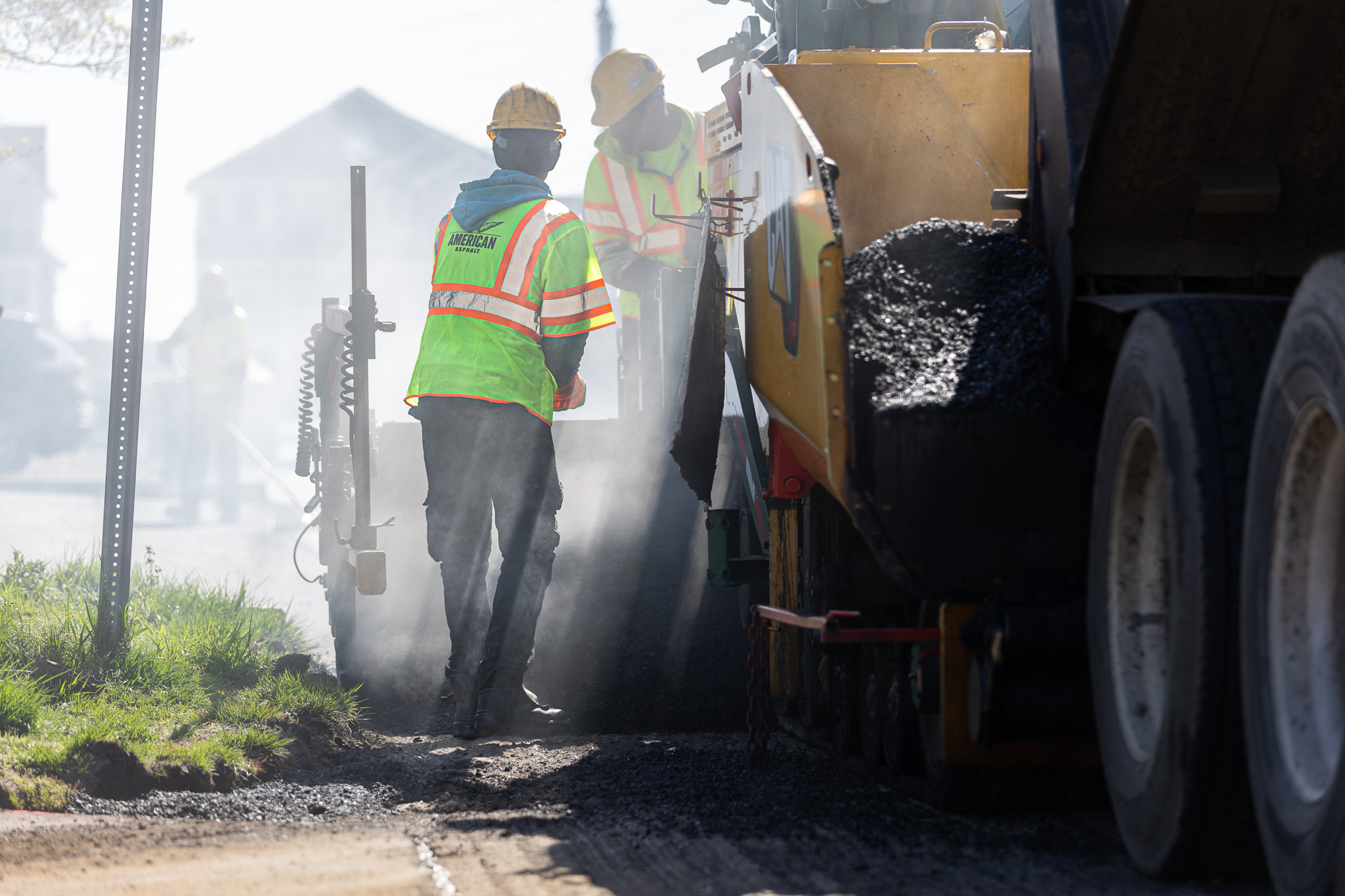
Concrete vs. Asphalt: Which Is Best for Your Business?
As a business owner, you understand the importance of presentation. An attractive, functional parking lot is essential for smooth operations. However, maintaining one can be a hassle – so it’s important to choose your paving materials wisely. American Asphalt provides asphalt paving and other related services for businesses throughout New Jersey and eastern Pennsylvania. Here, we compare concrete to asphalt paving to help you select the best option for your business.
What’s the Difference?
Before exploring the advantages and disadvantages of concrete and asphalt, it may be helpful to understand what each material is made of. Though similar, concrete and asphalt differ in a few key ways. This includes their makeup and the road-laying process:
- Concrete: Concrete is made using a mixture of sand and gravel. These materials are combined with cement, which acts as an adhesive to hold the mix together. The mix is combined with water to create a liquid slurry which is poured into place and hardens as it cures.
- Asphalt: While asphalt also contains stone and sand, bitumen – a petroleum product – is used as its binding agent. Asphalt is softened and mixed under high temperatures, then rolled out using heavy machinery that presses it into shape. It then hardens as it cools.
These differences in composition and construction are what create each material’s notable features, including the smoothness of concrete and the signature blacktop look of asphalt. They are also what results in the unique strengths and weaknesses of each option.
Ease of Installation
As a business owner, you look for cost-effective solutions with minimal disruptions to your operations. Construction crews are often disruptive, so you’ll hope to be done as quickly as possible.
The installation process of concrete tends to be more involved. Crews must construct frames to keep the concrete in its shape until it cures. In contrast, asphalt simply needs to be pressed into place. The process is simpler, faster, and significantly cheaper – especially when paving a large area like a parking lot.
In addition, concrete takes up to a week to cure. During this time, it can’t support the weight of traffic. This results in extended downtime for your business. Asphalt, however, cures relatively quickly. It may be ready to drive on within the day so you can get back to normal productivity.
Cost
Asphalt is considered a cheaper option for paving than concrete. The cost of asphalt generally ranges from $2 to $4 per square foot, while concrete has prices ranging between $4 to $10 per square foot. The initial cost of installation is much less expensive for asphalt than it is for concrete. If you’re looking to keep installation costs low, asphalt is a better choice for paving your business.
Weather Resistance
New York, New Jersey, and Pennsylvania are prone to temperature swings and winter freezes that wear away at road surfaces. You want a material that will last without replacements.
Concrete is a brittle material once cured. This makes it prone to cracking, especially when exposed to cycles of freezing and thawing. While there are means to improve its resilience, it cannot be perfectly protected from unsightly cracks and gaps. In addition, salt – which is commonly used to melt ice on roadways and walkways – can react with the compounds in concrete. This eats away at the concrete, breaking it down faster and even causing it to chip.
The bitumen in asphalt, meanwhile, gives it superior flexibility. This ability to bend and twist helps it resist cracking under stress. It can also expand and contract, letting it adapt to changing temperatures – from scorching summers to frozen winters – without taking damage.
Maintenance and Repair
Alongside longevity, you must also consider maintenance requirements. Driveway surfaces must be maintained to make the most of their lifespans. This is a labor investment that may drive up business expenses and create disruptions.
Concrete requires almost no maintenance. Once cured, it will last with very little attention. The pale-colored surface, however, can be prone to staining from motor oil or rust. Meanwhile, asphalt has slightly higher maintenance requirements. However, it’s still easy to care for and its dark surface doesn’t show stains readily – letting it keep its good looks longer.
Though concrete is low maintenance, it is difficult to repair. Mending or replacing damaged sections can be costly, and matching the color is difficult, resulting in a noticeable patchwork appearance. Asphalt is easy to repair with sealcoating or by recycling the material that’s already there. Repaired asphalt also maintains a smooth and seamless look.
Improve Your Lot with Asphalt Paving
When it comes to paving your commercial property, asphalt is less expensive, faster to install, longer lasting, and easier to repair than concrete. These advantages make it the best option for businesses that need to preserve profits and avoid disruptions. Turn to American Asphalt for your asphalt paving needs, which provides professional paving services of all sizes to businesses throughout NJ and in eastern PA. Contact us today to learn more or request an estimate on your paving project.


